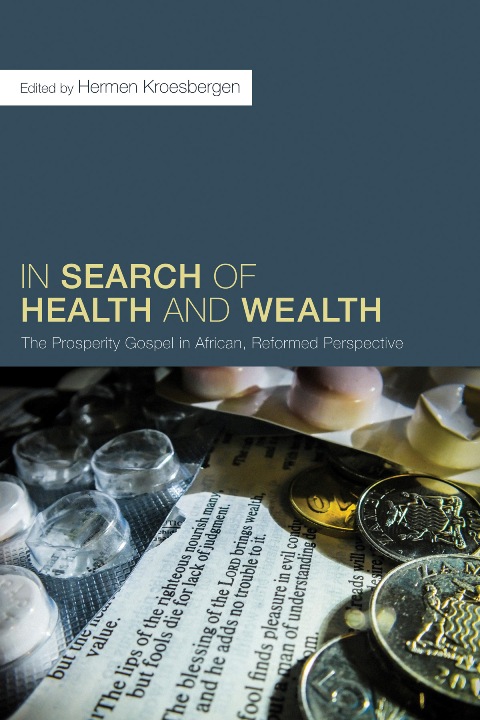Prosperity Gospel in Zambia: The Problems of Engaging African Theology Using English
In this review essay, missionary-scholar Jim Harries challenges Western assumptions used to decry the prosperity gospel as it is taught and believed in Africa.
 Hermen Kroesbergen, ed., In Search of Health and Wealth: The Prosperity Gospel in African, Reformed Perspective (Eugene, Oregon: Wipf and Stock, 2014).
Hermen Kroesbergen, ed., In Search of Health and Wealth: The Prosperity Gospel in African, Reformed Perspective (Eugene, Oregon: Wipf and Stock, 2014).
In reviewing a book about Africa written in English, one is tempted to ignore constant category errors being made. I have chosen in this review not to ignore them.
The contributors to this book have embarked on an impossible, but nevertheless important task. Impossible, I suggest, because one cannot effectively evaluate African thinking using English. Important, because the issue they address is critical and topical. The book is an outcome of debates that occurred at Justo Mwale Theological University in Lusaka, Zambia, in 2012.
My own background affects my interpretation. As a young man, I was much influenced by Calvinism. I continue to love Calvin’s teaching. Yet, I struggle to see how it can fit in Africa. I lived in Zambia from 1988 to 1991. Since 1993, I have lived in Western Kenya. Reformed churches in my home area in Kenya (I am familiar with one or two, there may be more I do not know about) have been swamped by Pentecostalism. It is hard to see how a reformed church can thrive, except through foreign donations, which would then implicate them in a kind of prosperity teaching that this text sees itself as critiquing.
Chilenje gives us a run-down of the kinds of difficulties that the West has with prosperity teaching. In the following chapter, Zulu sees positive things in prosperity teaching, rejecting the idea that it is only a pathology. Ellington tells us that correct analysis of biblical texts would solve the problem of prosperity teaching. Banda, D. suggests that we shouldn’t attack prosperity unless or until we have a better alternative. Then Banda L. suggests that the best way to resolve the rift between reformed and Pentecostal churches, is through dialogue. Kroesbergen struggles not to condemn prosperity teaching as sheer folly, by looking at ways in which it enables African dignity. Soko sees prosperity teaching and Pentecostalism in general as a response to globalisation. Kroesbergen-Kamps realises that in Zambian minds, Christianity and modernism are integrally linked. Togarasei concludes the book, by suggesting that what prosperity-oriented Zambians are looking for is not flagrant wealth, but merely bread on the table.
Many hours were needed to edit and proofread this book (xi). This indicates a starting difficulty – the expectation that citizens of African countries should produce work of a literary standard that pleases Western scholars. The book presents many respectable avenues of exploration of prosperity teaching in Zambia. I very much appreciate the efforts made by its authors.
Be careful with the words you use: Supernatural is a Western category, from Western positivistic dualism.


